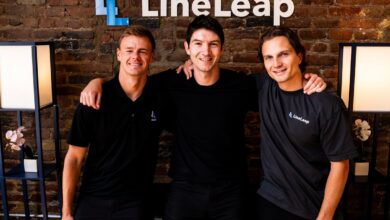Tesla makes Musk best-paid CEO of all time and Fisker bites the dust

Welcome to Startups Weekly — Haje‘s weekly recap of everything you can’t miss from the world of startups. Sign up here to get it in your inbox every Friday.
Elon Musk just convinced Tesla shareholders to approve his $56 billion pay package, making him the highest-paid CEO in history — assuming he can dodge a Delaware judge’s disapproval. And where better to stage this circus than Texas, home of big everything, including egos? Shareholders erupted in applause at Tesla’s Texas gigafactory when the vote results were announced. Meanwhile, Musk juggles more companies than a clown with chainsaws and faces two new lawsuits (being sued just once per week is for wimps). Oh, and forget about any fancy ESG initiatives; those got shot down faster than you can say “corporate responsibility.” Who needs sustainability when you’ve got Elon dancing onstage with 0.7 Twitter’s worth of cash in a suitcase?
Most interesting startup stories from the week
It seems Henrik Fisker’s knack for designing cars is only matched by his talent for driving companies into bankruptcy. Despite aiming to be the Apple of EVs (with Magna playing Foxconn), the much-touted Ocean SUV sank faster than the Titanic with software glitches, recalls, and lemon lawsuits galore. Now filing for Chapter 11 in Delaware, Fisker has gone from dreams of revolutionizing the auto industry to just trying not to get stuck with a $500 million bill. This marks Fisker’s second go of bankrupting an eponymous company. Can he make it to three? Stay tuned.
- Yeah, saw that one coming: Ever feel like your subscription services are plotting against you? Well, Adobe just got called out by the DOJ for allegedly making it easier to escape from Alcatraz than cancel one of their subscriptions.
- You will watch our ads: YouTube is at it again, folks. This time they’re pushing their anti-ad blocker crusade to new heights with server-side ad injections, making sure those pesky ads greet you before the video even lands on your device. Oh, and I summarized this story in the TechCrunch Minute series, if you’re more of a watcher than a reader.
- Goin’ round in circles: Looks like Loop, the insurance startup with a noble mission to overthrow biased pricing models, has hit a massive fundraising wall. After 20 months of trying (and failing) to reel in some cash, co-founder John Henry had the unenviable task of announcing layoffs via Instagram.

Trend of the week: All eyes on AI
Apple has finally thrown its hat into the AI icon circus, joining the likes of Google and OpenAI in a desperate bid to depict AI with a logo that makes any sense at all. Spoiler alert: They’re as clueless as everyone else. Apple’s new visual for “Intelligence” is essentially a psychedelic circle — wait, no — a lopsided infinity symbol? Actually, it’s New Siri. Or maybe it’s when your phone edges glow like an alien spaceship landing. The real takeaway here? No one knows what AI should look like, but let’s slap on some friendly pastel colors and call it innovation.
Meanwhile, Ilya Sutskever, the AI brainiac who last month decided OpenAI wasn’t exciting enough anymore, has started his own shindig called Safe Superintelligence Inc. (SSI) with a couple of other ex-OpenAI pals. After a dramatic exit from OpenAI (presumably over how to avoid Skynet taking over), Sutskever is doubling down on making sure super-smart AI doesn’t become our overlord anytime soon. SSI’s mission? To balance mind-blowing AI advancements with safety measures so we don’t end up starring in our very own “Black Mirror” episode.

Most interesting fundraises this week
Meet the dynamic duo who seem to have skipped their quarter-life crisis and went straight to swimming in cash. Edward Tian and Alex Cui, founders of GPTZero, are living proof that high school friendships can lead to multimillion-dollar ventures. In just a year and a half, they’ve turned their AI detection startup into a moneymaking machine that’s outpacing your favorite viral app. With $10 million freshly bagged from eager VCs who couldn’t wait for an official raise, these guys are on track to create an internet where we can still tell if your essay was written by you or ChatGPT’s stoned-beyond-words cousin named Cheech.

Other unmissable TechCrunch stories …
Every week, there’s always a few stories I want to share with you that somehow don’t fit into the categories above. It’d be a shame if you missed ’em, so here’s a random grab bag of goodies for ya:
- So what happened with Fisker?: Once again, Fisker proves it’s the little engine that couldn’t. Despite outsourcing their manufacturing to automotive giant Magna and aiming for a rapid launch, the EV startup ignored one glaring issue: It wasn’t ready to be an actual car company.
- Tough times to be an Apple developer: Get ready to pour one out for your favorite third-party apps because iOS 18 is on the way, and it’s bringing its wrecking ball. Apple’s notorious habit of “sherlocking” — aka swiping ideas from third-party developers and baking them into its OS — could hit nearly $400 million in app revenue.
- Vita-minus: Well, it looks like personalized vitamin subscription company Care/of is officially calling it quits. The company announced all subscriptions will end by June 17. Despite being propped up with $46 million from investors and a hefty Bayer buy-in valued at $225 million back in 2020, it just couldn’t keep the lights on.
- That’s not how privacy works: In a dazzling display of cybersecurity cluelessness, the EU lawmakers are once again trying to pull off the legislative equivalent of juggling saber-tooth tigers while blindfolded. Meredith Whittaker, president of Signal and bearer of common sense, slammed the EU’s latest plan to scan private messages for CSAM as a surefire way to throw web security under the bus.
Source link



